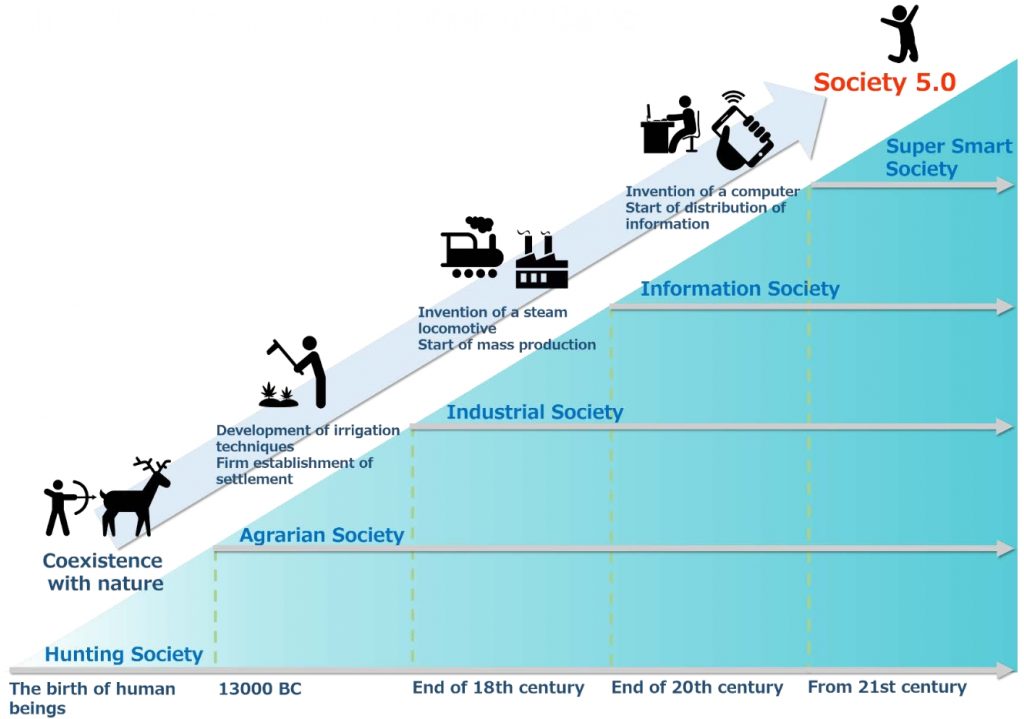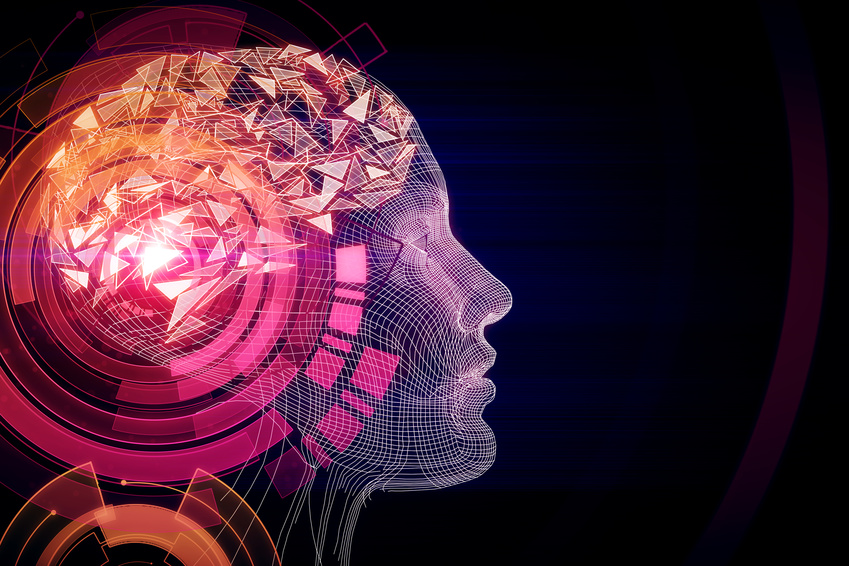by Dr. Lorenz Granrath on Aug. 29, 2017 in Industrial R&D in Japan
Germany’s Industry 4.0 is a well-known buzzword. Japan has now introduced Society 5.0. Is this a mere one-step-ahead game, or is there more behind?
Industry 4.0
As the name already indicates, Industry 4.0 is looking mainly into industrial production. Its main idea is the information exchange between companies down to the machines and processes.
Nowadays, not only machines but virtually all objects are equipped with sensors that produce information about their status or location. This means that there is much more information is available than there was before. As the interfaces are not yet clearly defined, the amount of information increases and becomes impossible to be processed by humans.
This is where artificial intelligence (AI) comes in. It has now become not only smart enough to win games against humans, but also to extract meaning out of big data. As computing power is doubling in less than every two years, AI power is increasing very quickly.
This opens up new possibilities, but also new dangers.
The origin of Industry 4.0 lies in the High-Tech Strategy of the German Government. The latest, published in 2014, defines six fields of priority:
- The digital economy and society
- The sustainable economy and energy
- The innovative workplace
- Healthy living
- Intelligent mobility
- Civil security
The first field, digital economy and society, made digitalization of the German Industry a very important and prominent topic and ultimately resulted in the term Industry 4.0.
Society 5.0
Today’s big data comes from sensors in objects, which include for example machines in industry, household equipment, cars and mobile phones. Smartphones track your location, social networks your interests and credit card companies your commercial activities. All this data is too complex to make sense to humans, but AI can extract some conclusions.
The availability of such vast data in addition to increasingly powerful AI leads to new ways of business, technological and social interactions. It will change not only the industrial sector, but society as a whole. This is also stated in the German High-Tech Strategy, but Japan came up with a much better term that describes what will happen:
Society 5.0.
In April 2016, the Japanese government enacted the 5th Science and Technology Basic Plan. It covers many aspects, including innovation promotion and internationalization. A focus point, however, is the development of the society towards a Super Smart Society, the Society 5.0.
The underlying idea is that the rapid development of information technology now allows the combination of cyber space – the information – with the physical space – the real world. The combination of both are Cyber Physical Systems (CPS), objects of the real world enhanced and combined with information. This is expected to bring about a major shift in society.

Society 5.0 will be the fifth step in the evolution of the human society. After being a hunter (Hunting Society), men settled down in the Agricultural Society. In the Industrial Society, mass production provided products for everybody. Currently we are in the Information Society, where information is the key factor. However, creation of knowledge from information is still accomplished by humans. Yet in the fifth stage of human society, this will be done by machines, by AI.
Prime Minister Shinzo Abe introduced and promoted the super smart society at the CeBIT 2017 computer fair in Hannover in March, where Japan was the official partner country.
Support for the fast aging society
Japan is the fastest aging society. In 2050 an estimated 40 percent of the population will be 65 years and older. People in Japan also call it the super aging society. Challenges will not only be to have enough caretaking, new pharmaceuticals or assist systems to stay independent. With more elderly people, also the workforce is declining. Japan is already famous for its robot developments, so it is no wonder that the solution for these challenges will be smart robotics. As assist systems could enable a prolonged independent life, robots can take over work in elderly care. And finally, AI can help to develop new drugs as well as support elderly people in everyday life.
Conclusions
Japan moved boldly by calling the future development Society 5.0. It implies that changes will concern every aspect of society, not only industrial production. Germany intends the same, but the tendency got distorted through the buzzword Industrie 4.0.
New developments of the Internet of Things, big data and AI also strongly depend on the openness to the outside world. While a machine could be adapted to fit into a factory in a foreign country in the past, the interaction now becomes more complex and needs to be embedded into the respective environment. If your refrigerator orders fresh beer directly at the supermarket by himself in the future, it has to speak the local “computer” language.
